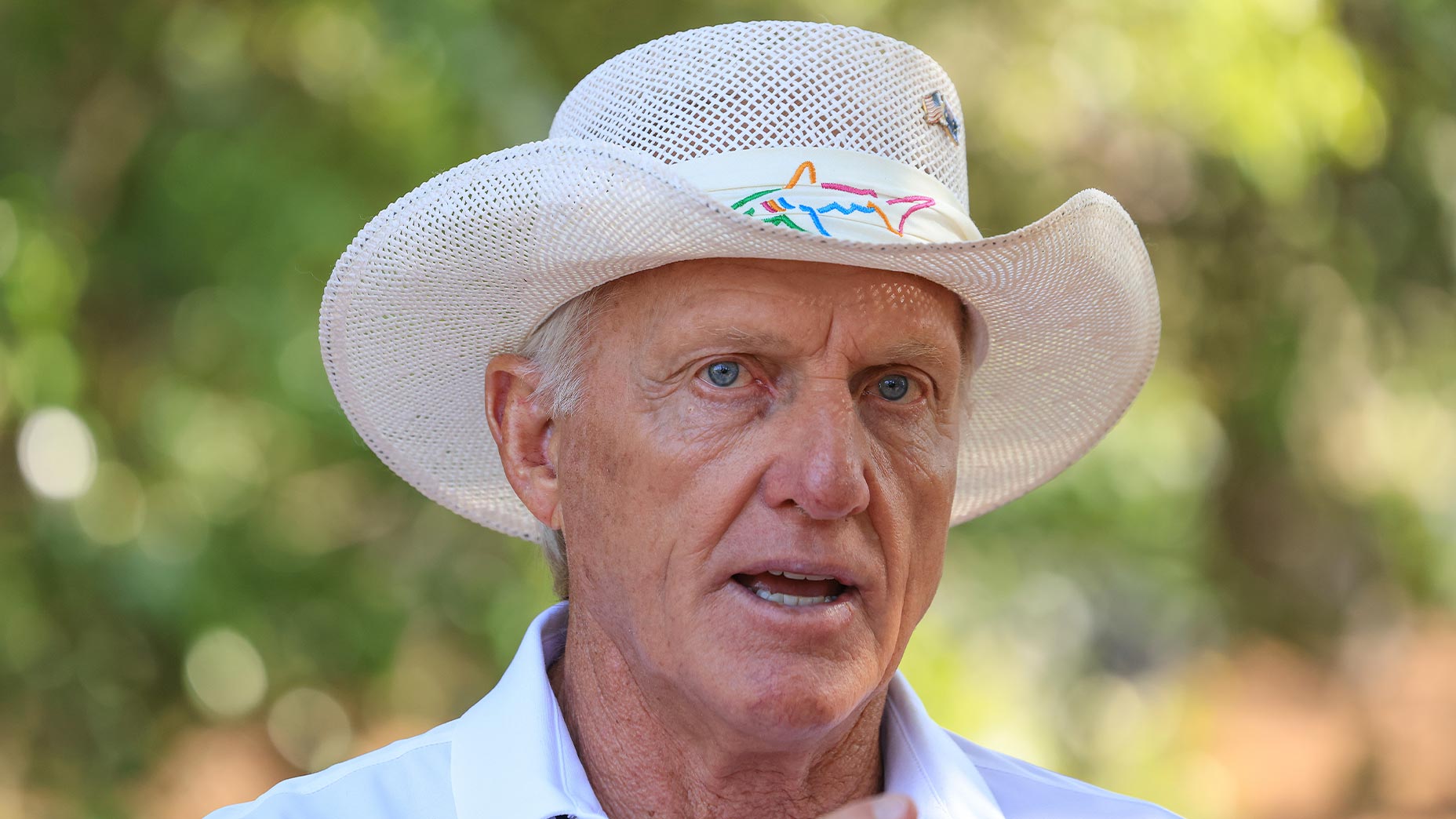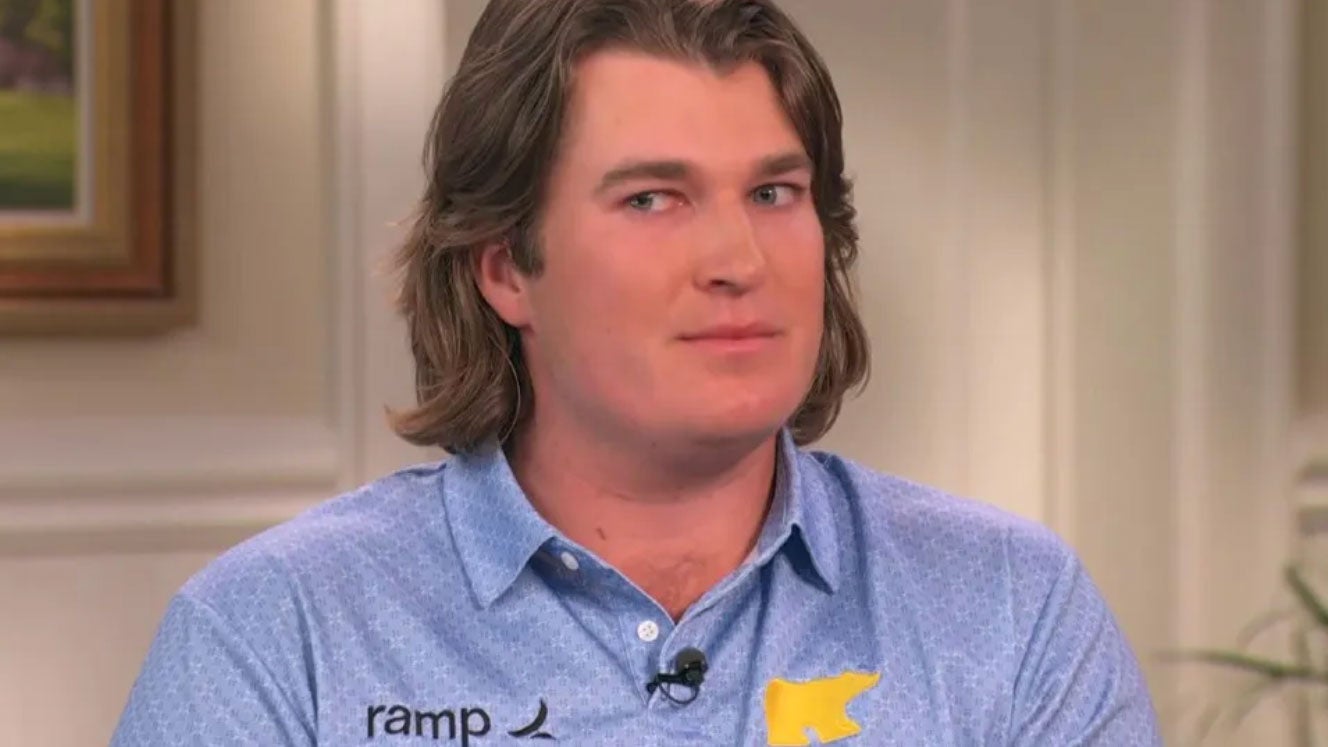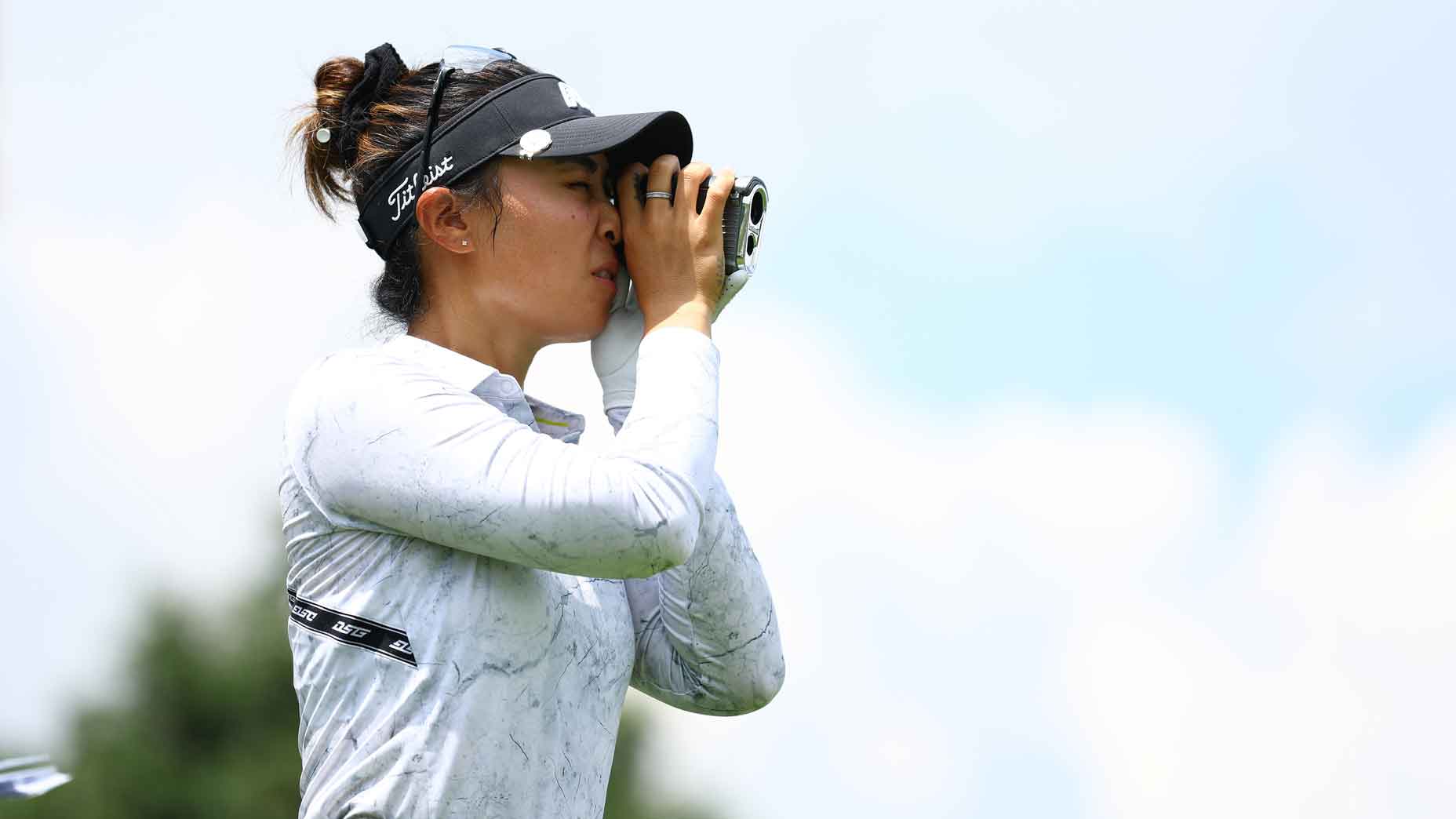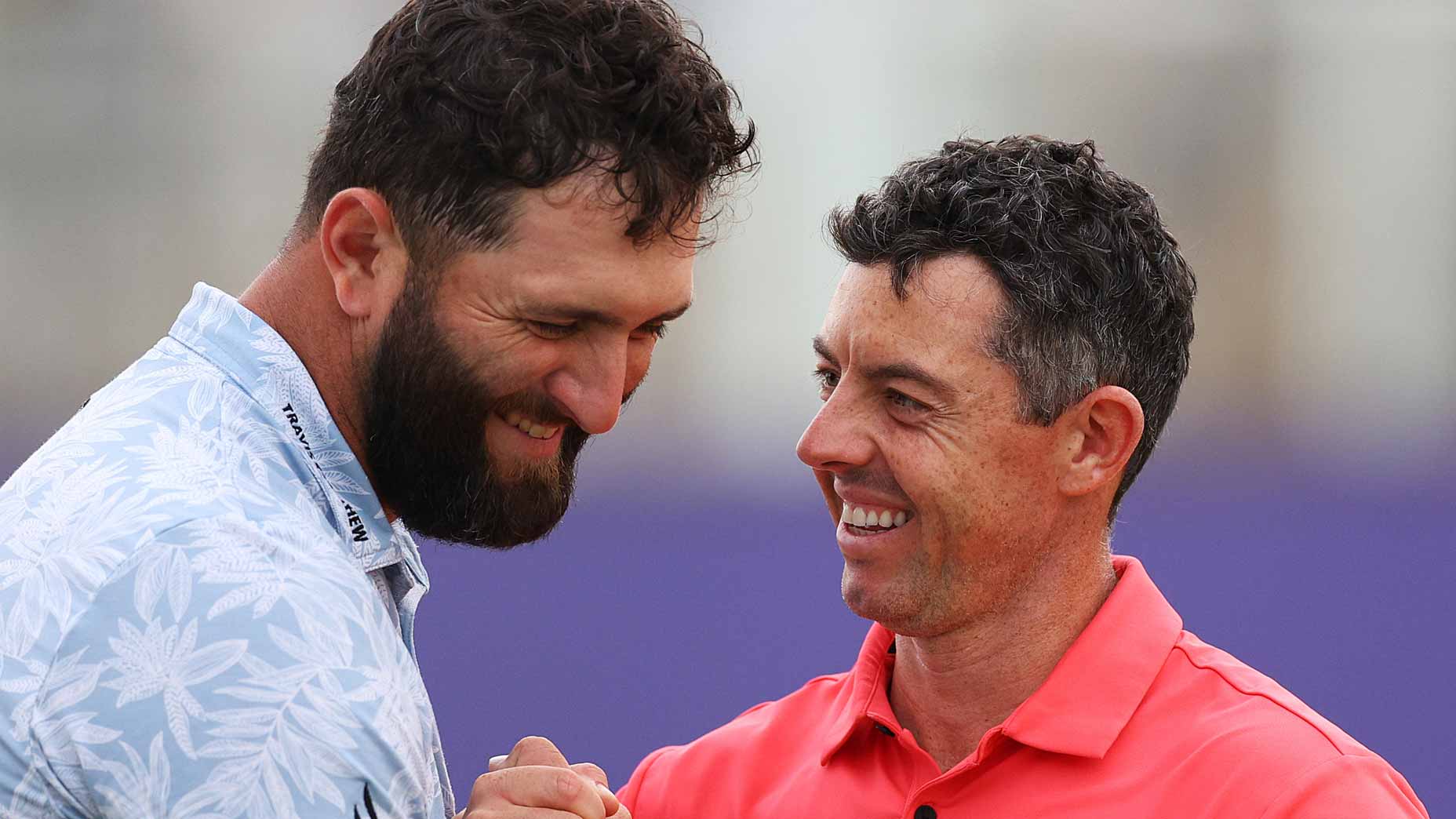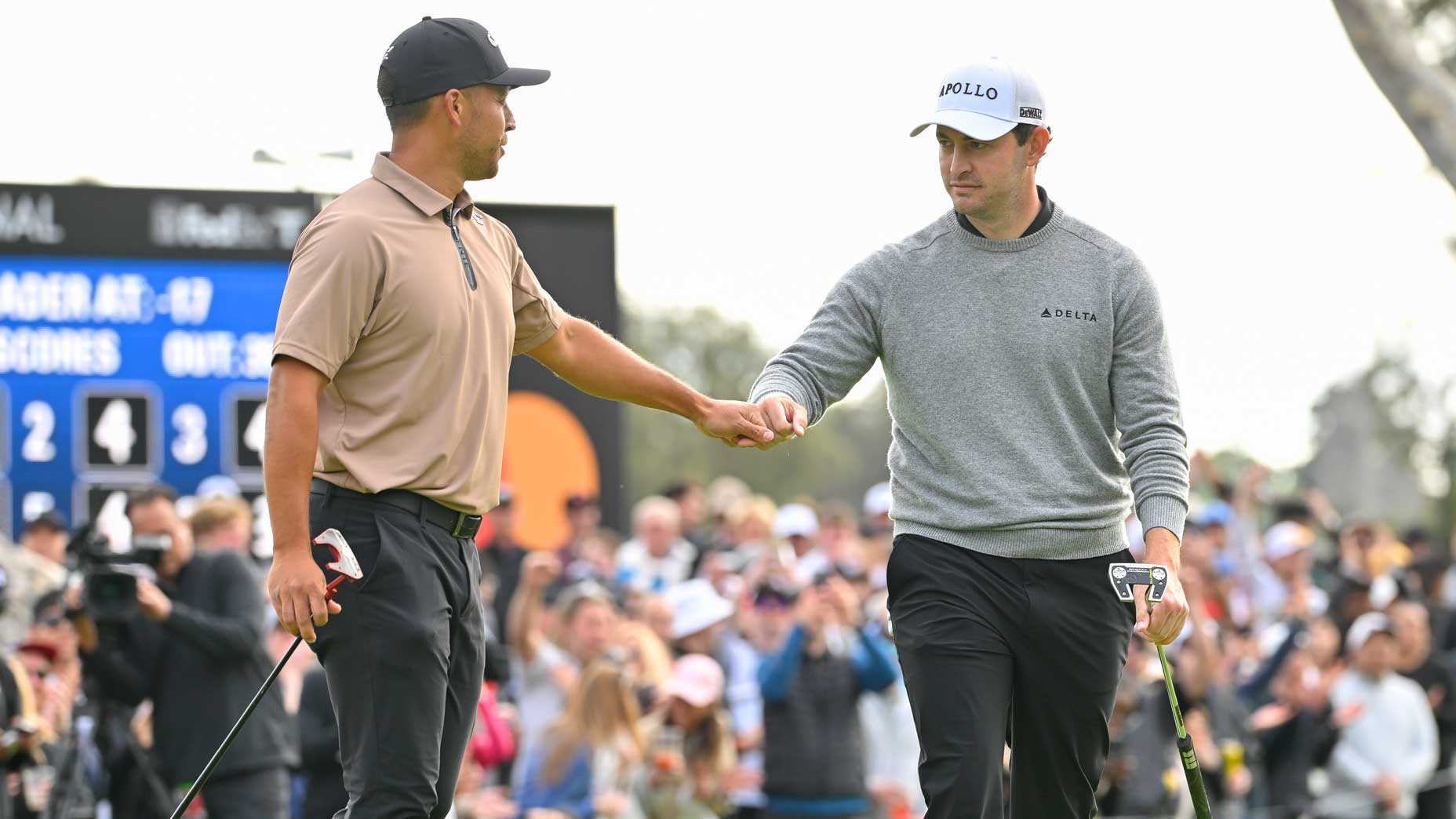At just a gap wedge short of 40 years old, Matt Kuchar is, arguably, in the prime of his life. The man universally and affectionately known as “Kuch” exudes a palpable sense of contentment and joy. The deep tan he’s sporting on the mid-winter day when we meet? Evidence of a work/vacation in Southwest Florida. The smile? Well, that’s just Kuch.
He first made waves in golf when he won the 1997 U.S. Amateur as a lanky teen. In the 20 years since, Kuchar has been a model of consistency on the PGA Tour, a quietly fierce competitor with a glass-half-full appreciation of his numbers: seven career wins, 95 top 10s, loads of bank and an Olympic bronze.
But still no major. Kuchar cemented his place in the “Best Player to Never Bag a Big One” discussion with a heart-wrenching runner-up finish at last year’s Open Championship at Royal Birkdale, where Jordan Spieth’s back-nine heroics left Kuchar a little chastened — but with an even more enhanced aura as a good-guy family man.
Which isn’t to say he’s a saint. Notoriously, Kuchar is as quick with a wisecrack as he is with a grin. When it comes to needling … no one is safe.
You’re one of the most popular guys on Tour. We hear “Koooooch” week in, week out. Yet it seems the public doesn’t know you all that well. You’re not active on social media. In fact, the Matt Kuchar on Twitter is a real estate guy in Colorado. Would you agree that you’re a bit of a mystery to golf fans?
I don’t know. I think they see a good bit of me. I choose not to do social media. I tried it for one week. I felt like it was just not right at all for me. I felt like the whole idea behind it was bragging and showing off, and it felt completely unnatural and wrong to me. But I don’t know, I feel like I’m a pretty clean-slate guy. There’s not a whole lot of skeletons in the closet.
You give off the impression of being really happy-go-lucky, someone very generous with a smile. Do you ever get mad?
I certainly do. I’ve got a 10-year-old and an eight-year-old boy. My 10-year-old has a temper with sports. If he loses, he’s unhappy. But I cut him a bit of slack. I was that way as a kid, as well. I used to throw racquets on the tennis court; I used to throw clubs on the golf course. And I learned my lesson. My parents would take away my tennis racquet for a week, take away my golf clubs for a week, and I didn’t like those weeks very much. I learned my lesson pretty quickly — and learned ways around it. But I think I’m blessed with a makeup that tries to find enjoyment in whatever the situation is. You know that saying, “Life’s too short not to have a good time”? I’m going to find out how to have a good time, particularly on the golf course.
Lots of Tour players have told me they were hotheads in high school or college. Was there a moment when it clicked for you, that you clearly understood that a bad temper was counterproductive to what you wanted to do on the golf course?
I don’t know that there was a moment. I had parental influence, making sure I was doing the right thing; or a college coach making sure I was conducting myself appropriately. In college, I read the Bob Rotella books on the mental side [of the game], and I remember the example of being your own caddie. You’d never pay a caddie to say to you after you had a lousy shot, “Oh man, you stink. I can’t believe you hit it there!” In that same way, you kind of have to be your own caddie and say, “Hey, that wasn’t a great shot. Let’s go figure out how to make the most of the next one.”
Does your demeanor sometimes get misconstrued as a lack of intensity?
Well, I’m not the one who’s construing it, so I’m not sure. People can construe a smile on my face however they’d like.
We’ve heard you’re a guy who likes to needle other Tour pros. You might even be the biggest ballbuster on Tour. Is that a fair assessment?
[Laughs] I am probably quick to throw out a jab, but I think self-deprecating humor is the best and funniest kind. And I’m okay to make a jab right back at myself if the situation calls for it. It’s all in good fun. If you’re not okay laughing at yourself, I’m probably not gonna be friends with you.
Who are your favorite targets?
Phil Mickelson is fantastic. He’s one of the all-time great trash-talkers, and it’s fun to, every now and then, get the upper hand with him.
 Is it an art form — to toe the line of being just offensive enough but not too offensive?
Is it an art form — to toe the line of being just offensive enough but not too offensive?
Probably. I’m sure some people get away with it better than others.
All right, imagine you and I are teeing it up. What’s the first thing you’d needle me about?
Oh, probably the Puma shirt. [Laughs] You look like Little Rickie today.
But I’m not wearing Puma! Speaking of bright notes, 2017 was a pretty successful year for you — top 10s in three of the four majors, including your second-place finish to Jordan Spieth at last year’s incredibly dramatic British Open. How do you view last season as a whole? Are you thankful to have had those close calls or, in the end, disappointed that you didn’t win your first major?
Grateful or disappointed — it’s a hard one to figure. Clearly, it’s my best run in major championships. I look back at that British as a great chance to finally win a major, and it didn’t happen. But when I look at how I played the round, particularly the final few holes, I had a one-shot lead with five to go, and Jordan just turned it on. There’s nothing I could do. I played great golf. I would take the same level of golf again. Clearly, it stung a little bit, but you can’t control what other people do, you can only control what you do. And I hold my head high with what I did.
Does such a close call ramp up your desire to win a major even more?
It’s interesting, the game of golf — trying to figure out what to do differently and whether you should make changes. It’s been a couple of years since I found myself in the winner’s circle of any PGA Tour event. And that’s a bit how we’re judged on Tour, by wins.
Is that a legit yardstick? If you don’t win a major, will you think of your career as a disappointment?
Well, if I stopped right now, I’d have seven wins to my name. And I probably ought to have more than that. But I look at the quality of wins. I look at the win at the [2012] Players Championship, at the [2013] Memorial; at the [2013 Accenture] Match Play; and the [2014 RBC Heritage] win at Hilton Head. I’ve won against great fields, and I’ve won some great events in golf. I’m pleased with what I’ve done. But yeah, a major’s not included in that, and I get that that is history. We’re all out here trying to make our mark in the game.
 What did you learn about yourself at the British?
What did you learn about yourself at the British?
[Laugh] Nothing I hadn’t known. Timing’s so critical in the game of golf. Playing well at the right time is a hard thing to get right. Some guys do. Andy North got two majors — two U.S. Opens. He got it right at the right time. And there’s a long list of guys with similar stories. I’d like my timing to come.
Your family surprised you that Sunday at Royal Birkdale. Your sons Carson and Cameron were there with your wife, Sybi. What was it like to have them with you in that moment — not just as a golfer but as a dad?
Well, it was great, and it was heart-wrenching as well. As a father figure, you want to be that guy that kind of does the great things, who provides for the family and is, you know, “My dad’s the best.” You want to be the best. To not win was tough for me, just me as a golfer. And then to not come out on top in that situation, having my family there, where, you know, their dad wasn’t the best that day, was hard. I saw my kids for the first time when I walked off the green. I didn’t know they were there. And they had tears in their eyes, and it was heartbreaking as a parent not to be the guy that brings home the trophy and is the Super Dad. But it was awesome to have them there. You want people you care about to share in everything — the good and the bad. And, you know, I finished second in the British Open. It’s certainly not the worst thing in the world. It’s certainly lessons learned. That’s the great thing about sports: all the hard work that goes into it, and what you do when things don’t go your way. You don’t get to win every tournament, but you keep moving forward, you keep trying to figure out how to get better. Those are the lessons I share with my kids.
Thinking back to when you were a kid, were you pretty much the same upbeat person you are today?
Yeah. I loved playing games. I loved playing sports. If there was some sort of competition, I wanted to figure out how to do it and how to do it well. As a kid, I never wanted a proper job, I wanted to play a game forever. It’s the great thing about what I do: I get paid to play a game. It’s an amazing deal! It lets you stay in that inner child, lets you stay young. I mean, it’s fun for me, with the kids now, to get involved with their games, to stay young by jumping in the pool and trying to make the biggest cannonball splash. And I still get to go chase a white ball around and see how quickly I can get it in the hole. As a kid, that’s what I wanted to do. I wanted to figure out how to be really good at a game so I could play it for the rest of my life.
Well, mission accomplished. Thanks for the time.
Thank you. Nice wannabe Puma shirt, Little Rickie.


